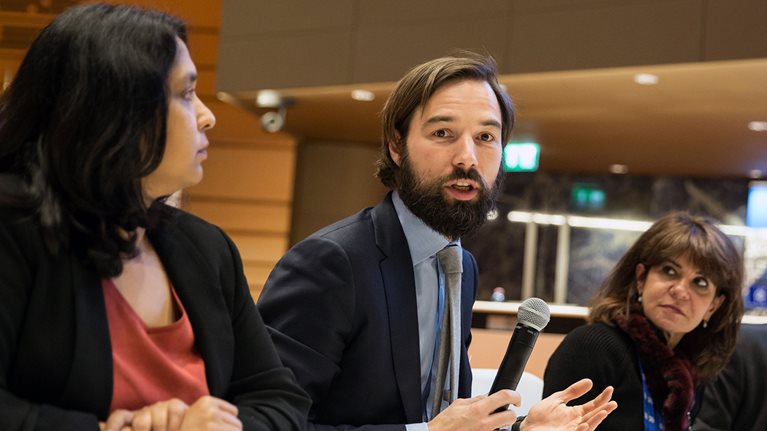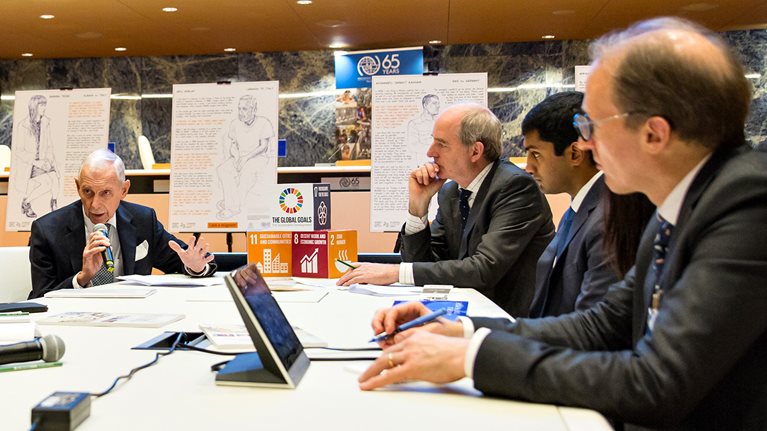What percentage of McKinsey consultants are migrants or the children of migrants? This question came up as the team behind our new report on global migration was putting the finishing touches on the analysis. Many of the consultants who work on the project team live outside the country of their birth. Just like the estimated 247 million migrants globally, their reasons for moving are incredibly varied and deeply personal.
“My father is from Syria, my mother from the eastern part of Germany,” says Khaled Rifai, a McKinsey partner and one of the report’s coauthors. “They met at university, where my father studied on a scholarship. After my brother and I were born, we fled East Germany to Kuwait, where my father’s family lived. After spending most of my childhood in western Germany, we moved back to Kuwait for a second time in 1989, only to be forced out of the country shortly before the Iraqi invasion.”
“When we returned to western Germany, the border had just opened, and we found ourselves in the midst of mass migration within the country. It wasn't easy to find accommodation: our whole family lived in a studio for over a year. We had only a handful of personal possessions, as we had left Kuwait on short notice. We weren’t exactly refugees, but I do remember growing up with the feeling that I did not really belong. My father often told us that we had to work harder, to ‘dig in’ more, just to keep up with our German peers.”

Khaled, who now lives in New York City, was part of the McKinsey team that yesterday presented our research to the Council of the International Organization for Migration (IOM) in Geneva. He was joined by research team members Anu Madgavkar, Ravi Ram, and Jonathan Woetzel, himself a migrant from the United States to China. They also joined a roundtable discussion about the report’s findings with migrants who have been supported by the IOM.
As the research makes clear, the recent wave of immigrants arriving in Europe from the Middle East and Africa is part of a much larger global phenomenon. More than 90 percent of the world’s cross-border migrants moved voluntarily, usually for economic reasons. According to research from the McKinsey Global Institute, migrants account for 3.4 percent of the world’s population but contributed 9.4 percent of global GDP.
That said, the humanitarian challenge of forced migration is very real and urgent. Over the past 18 months, we’ve been working on the ground in the Middle East to help governments, aid agencies, and other stakeholders create economic opportunities and deliver education to refugees and refugee-host communities.

As part of our collaboration with the International Organization for Migration (IOM), McKinsey editor and illustrator Richard Johnson captured the personal stories of migrants in sketches and interviews. His work will be on show at events globally over the coming year, visiting Berlin, London, Vienna, Geneva, and Dhaka in the next two weeks alone, and then to UN sites globally in January. The portraits are also part of the IOM’s “I am a migrant” campaign.